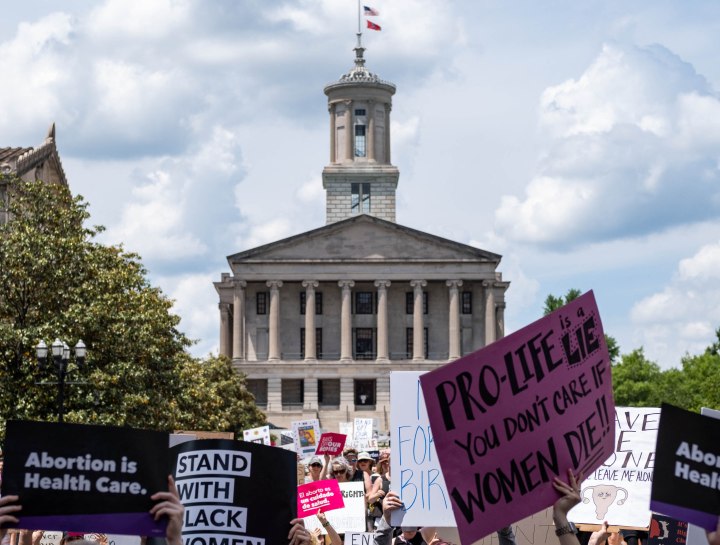
Why Tennessee is turning down millions of federal dollars for HIV prevention
Why Tennessee is turning down millions of federal dollars for HIV prevention

A 67-year-old grandmother arrived at an emergency room in Nashville recently with a broken toe. But she left with a life-saving diagnosis.
In this ER, the nonprofit Nashville Cares offers free HIV testing, funded by a long-running grant from the Centers for Disease Control and Prevention.
“She must have been living with HIV for around 17 years. And she was the sole caretaker for her grandchildren,” said Amna Osman, Nashville Cares CEO. “She would have never known her HIV status if it wasn’t for us being at the emergency department, and these funds made it possible.”
CDC money to end the HIV epidemic has been flowing to nonprofits around the country for years. But in January, the state of Tennessee suddenly informed partner organizations that money was going away.
Gov. Bill Lee decided to turn down roughly $8 million even though parts of Tennessee are hotspots for HIV transmission. Memphis is among the top 50 communities nationally for HIV transmission rates.
State officials claim they will keep spending on prevention but use state funds that they can direct as they see fit. For instance, they would no longer be under any obligation to send money to Planned Parenthood of Tennessee and North Mississippi, which still gets some of this CDC money for condom distribution. The reproductive health nonprofit already stopped performing abortions in the state because of an all-out ban, but elected officials have continued to try to defund the organization.
Tennessee’s new health chief, Dr. Ralph Alvarado, has tried to downplay the dire warnings from HIV prevention advocates and the few Democrats in the state legislature.
“I guess it’s abrupt as far as the decision,” he told state lawmakers in a hearing. “But the funding will go through the end of May. And then at that point, kind of a different course.”
That “different course” is being led by Gov. Lee. His spokesperson said in an email he wants to funnel prevention funding toward “victims of human trafficking, mothers and children, and first responders.”
But data show the most at-risk group in the state is young, Black men who have sex with men.
HIV prevention advocates are a little worried that other states led by conservatives may take a cue from Tennessee. Even the CDC is questioning the decision, though the state has not yet officially informed the agency that it’s turning back the money.
“We would certainly be concerned if the services people in Tennessee need to stay healthy were interrupted or if public health capacity to respond to HIV outbreaks and bring an end to this epidemic were hindered,” CDC press officer Scott Pauley said in an email.
Progress has stalled in recent years, especially in the South. The region accounts for roughly half of all new HIV infections nationwide.
Dr. Aima Ahonkhai, an infectious disease specialist at Vanderbilt University Medical Center, said even those who oppose same-sex relationships should consider how focusing on people at highest risk helps everyone.
“Everyone who needs care, deserves care. But if we just take a community perspective, if we don’t care for the people in our community, this disease gets further out of control for the whole community,” she said. “That has an effect on everyone, not just individuals who people might find morally objectionable. So it’s really difficult to hear all of this unfolding.”
There’s a lot happening in the world. Through it all, Marketplace is here for you.
You rely on Marketplace to break down the world’s events and tell you how it affects you in a fact-based, approachable way. We rely on your financial support to keep making that possible.
Your donation today powers the independent journalism that you rely on. For just $5/month, you can help sustain Marketplace so we can keep reporting on the things that matter to you.











